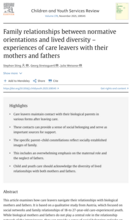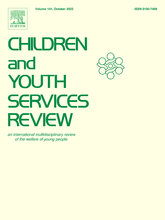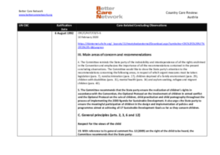Displaying 1 - 10 of 24
This article examines how care leavers navigate their relationships with biological mothers and fathers. It is based on a qualitative study from Austria, which focused on social networks and family relationships of 18-to 27-year-old care-experienced youth.
Previous research has focused primarily on the “leaving care” phase and related challenges in the transition to independent living. This paper is the first to analyze the socio-economic status and living situation of care leavers between the ages of 20–29 in Austria.
This study investigates the extent and causes of child abandonment and various practices and services in relation to prevention of child abandonment in Denmark and other high-income countries.
The RIC (Risk Indication in Child sexual abuse) and its screening version (RIC:SV) are actuarial risk assessment instruments, developed at the Austrian Federal Evaluation Centre for Violent and Sexual Offenders and designed for child protection services to assess the likelihood of sexual recidivism in male contact child sexual abusers who still or again live within a family including children.
In this webinar, hosted by Better Care Network and SOS Children's Villages International, panelists - including careleavers who served as co-trainers in the Leaving Care project - discussed the training, building a supportive network for care leavers, and the support needed to ensure that the rights of young people in alternative care are respected and that they are prepared for an independent life.
FICE Israel decided to initiate a short survey to document and share information about the way different countries handled their policies and practices in residential care facilities during that period. This report presents findings and some conclusions from this primary survey.
This country care review includes the care related Concluding Observations adopted by the Committee on the Rights of Persons with Disabilities and the Committee on the Rights of the Child.
The first section of this paper describes the various links between care leavers and their families based on a literature review. In the second section, the biographical relevance of the family is highlighted based on the example of a qualitative interview study about the educational pathways of 20- to 27-year-old care leavers.
This chapter from the book Education in Out-of-Home Care assesses a pilot project aimed at improving the school-based learning of children in residential care in Austria, Croatia, France, Germany and Spain.
Join this webinar to walk through the PROMISE Child Participation Tool and to discuss approaches and considerations for soliciting children’s views on their Barnahus experience.





